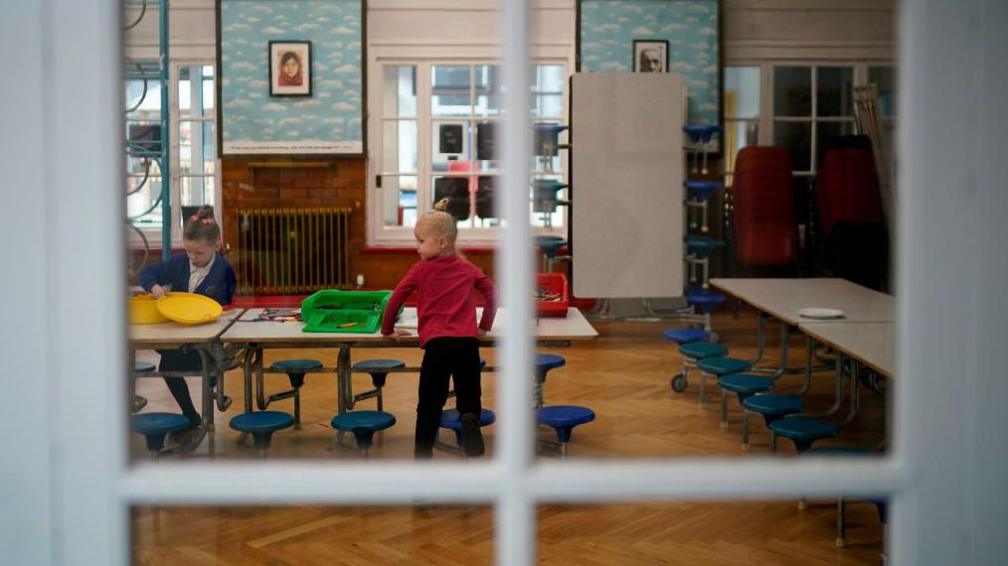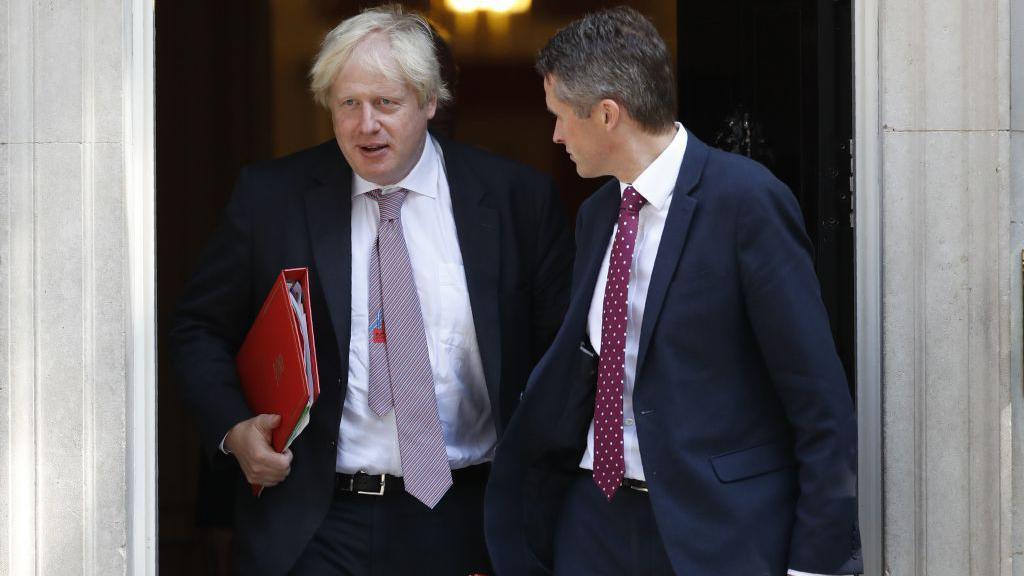Children paid 'huge price' in Covid pandemic, Johnson tells inquiry
Closing schools in Covid 'a nightmare idea', former PM Boris Johnson says
- Published
Children paid a "huge price" to protect others during the Covid pandemic, Boris Johnson has told the inquiry looking at the impact on young people.
The former prime minister repeated an apology made previously for things the government got wrong, but said he was proud of what teachers and schools did to cope with the "unbelievably difficult" circumstances.
He pushed back on earlier suggestions that there had been no plans in place for closing schools in early 2020, saying he had assumed a "great deal of thought and care" was already going into those decisions by then.
But he said he had also hoped schools could remain open, calling it a "nightmare idea" and "personal horror" to close them.
Former education secretary Gavin Williamson gave his own evidence to the inquiry last week, in which he said the government had made an error in "sticking to the plan" of trying to keep schools open in March 2020.
The inquiry was told a plan was only made on 17 March 2020 - the day before an announcement that schools were closing.
Johnson told the inquiry on Tuesday that he accepted the criticism around the lack of planning, but added that making changes to schools would have required a "much greater state of knowledge about Covid and what was likely to happen".
"The speed at which the disease was progressing" made it harder to plan around, he added, saying the key focus was on trying to avoid an "appalling public health crisis".
The inquiry has also heard previously about several disagreements between Williamson and Johnson, including over the decision to close schools again in 2021.
Last week, Williamson was confronted with an expletive-laden message he had sent to the then-prime minister in February 2021, in which he said he had taken "abuse" for the government's decision to shut schools one day after they reopened.
On Tuesday, Johnson told the inquiry he had wanted to see "mass testing" in schools as a way of keeping them open.
But that was "never going to be a runner" because of the new alpha variant which arrived at the same time and accelerated the spread of the disease, he said.
One of the biggest issues of the pandemic for both Johnson and Williamson came in the exam results fiasco of August 2020.
The Department for Education (DfE) had been forced to go back on its use of an algorithm to award results, which was designed to prevent inflated grades but which instead saw 40% of predicted results downgraded.
The public outcry led to a U-turn which meant pupils were ultimately awarded the grades they had been predicted by their teachers, after GCSE and A-level exams were scrapped earlier in the year.
Johnson was confronted with his own leaked messages at the inquiry on Tuesday, in which he had told advisers Dominic Cummings and Lee Cain at the time that the DfE needed "better ministers".
"We can't go on like this. I am thinking of going into Number 10 and firing people," he had said.
Johnson said he had been in a "thoroughly homicidal mood" at the time.
Referencing the exams fiasco, counsel to the inquiry Clair Dobbin KC suggested to Johnson that "the whole thing was a disaster".
"If you mean was Covid a disaster? Yes. Was the loss of education a disaster? Yes. Was the loss of exams a disaster? Yes. Was the disappointment, anger, frustration of a large number of kids - the additional frustration - a disaster? Yes it was," Johnson said.
"But it has to be seen in the context of us trying to deal with a much, much bigger disaster," he added, referencing the loss of learning and exams.
"On the whole", he said the DfE had done a pretty "heroic job" of trying to cope with the pandemic.
Later in Tuesday's evidence, Johnson said the lockdown and social distancing rules "probably did go too far", and that children could have been exempted from them.
While "hopefully this thing never happens again", he said in any future pandemic the closure of schools "really should be a measure of last resort".
This session of the Covid inquiry, looking at the impact of the pandemic on children and young people, is due to end later this week.
You can listen to the latest episode of the Covid Inquiry Podcast on BBC Sounds
Related topics
- Published29 September

- Published14 October
